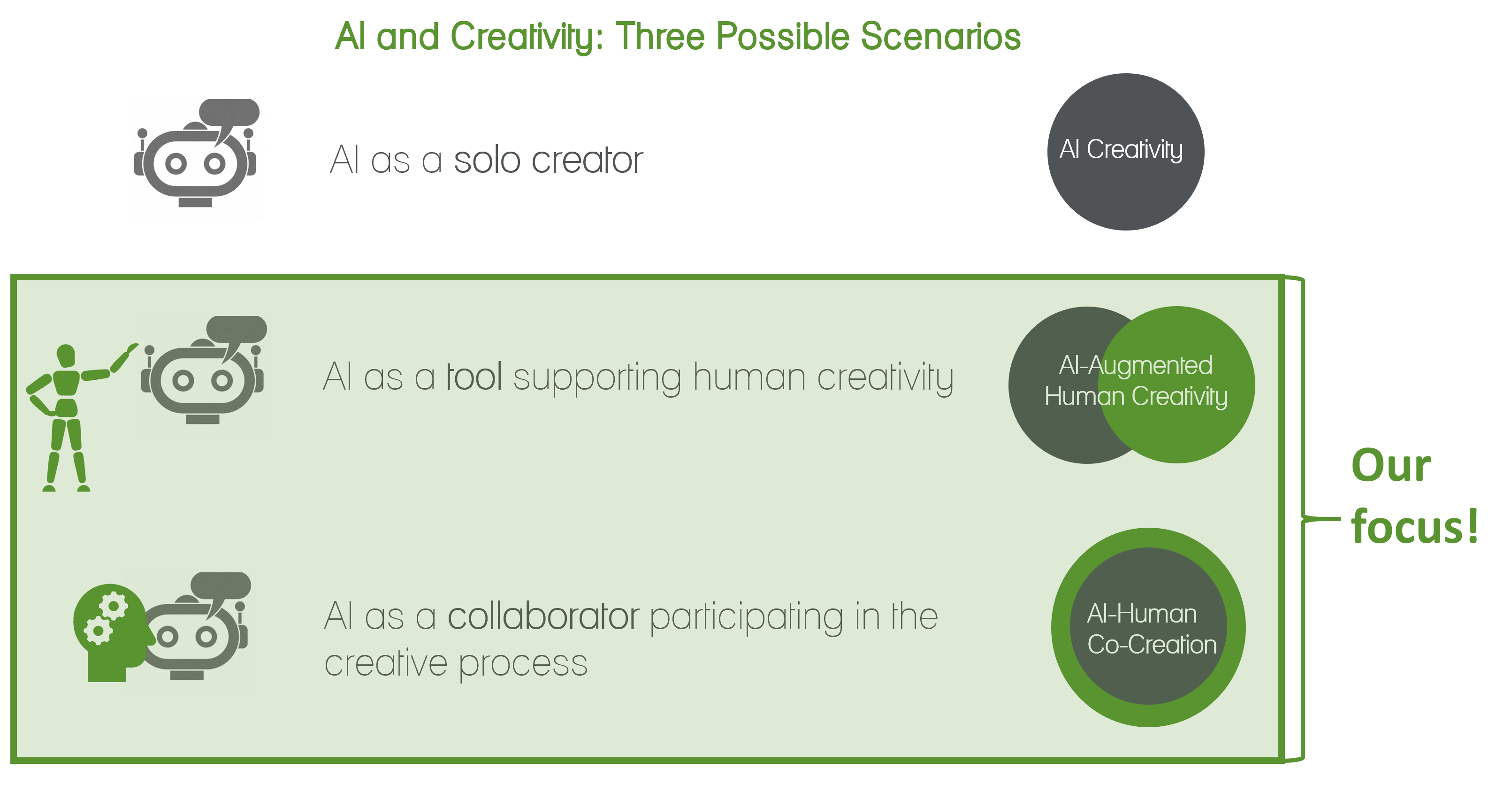Creativity & KI

Creativity & KI
What are we working on?
- New technologies such as AI can function as a form of cognitive extension or an augmentation of human intelligence.
- Creative thinking and problem-solving typically involves different cognitive process, particularly both divergent and convergent thinking and meaningful variation and recombination of available knowledge.
- AI empowers us through the entire creative process, enables collaboration across time and space, and makes creativity more accessible and inclusive than ever. Yet the most creative ideas still come from humans and extensive reliance on AI is associated with a decrease in the novelty of outputs.
- AI and human intelligence each have their strengths and weaknesses, therefore, human-AI collaborative intelligence (also known as “hybrid intelligence”) has been recommended in various areas.
Research Implications
To move beyond the question of whether to engage with AI in our creative endeavors and focus instead on HOW to collaborate with AI most effectively to enhance our individual and collective creative capacities and develop creative solutions to pressing or potential problems.

Exemplary applications
- Education: AI holds transformative potential for fostering creativity and innovation by enabling collaborative intelligence, advancing reflexive pedagogy, and enhancing mastering learning. It supports interdisciplinary and transdisciplinary education and can truly democratize innovation.
- Arts: AI can amplify human creativity and spur innovation through its ability to offer data-driven insights, propose novel concepts, and aid in refining designs. Despite the great potential of AI, it is stressed that the AI technology should be used as a tool to enhance creativity instead of replacing the unique spark of human ingenuity.
- Marketing: AI-driven analytical tools can help tailoring advertisements and promotional materials to user behavior and preferences, and enhance customer engagement by providing insights that facilitate highly personalized marketing strategies. AI and human intelligence have different strengths, and it is suggested human-AI collaborative intelligence in marketing.
- HRM: AI has been widely used in HRM and employee lifecycle (EL) management. AI’s capability to analyze complex datasets allows for more nuanced understanding of employee behaviors, predicting turnover, personalizing career development pathways, and improving job satisfaction. However, it is warned that AI should be used to strengthen but not replace HRM and staff and AI-powered HRM should work symbiotically.
Principal Investigator

Prof. Dr.
Min Tang
Professor, University of Applied Management, Ismaning, Germany
Completed projects
Text hier einfügen